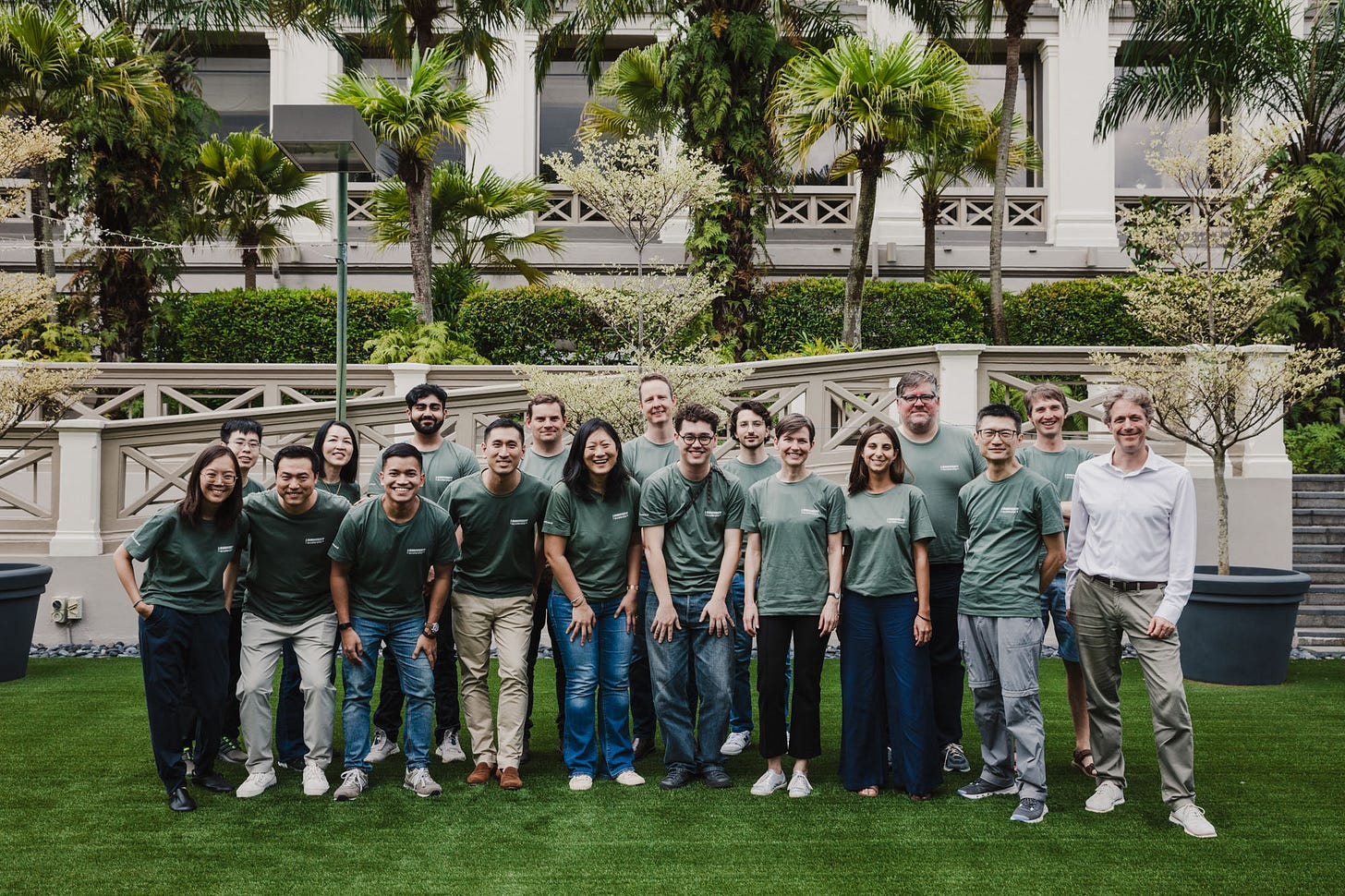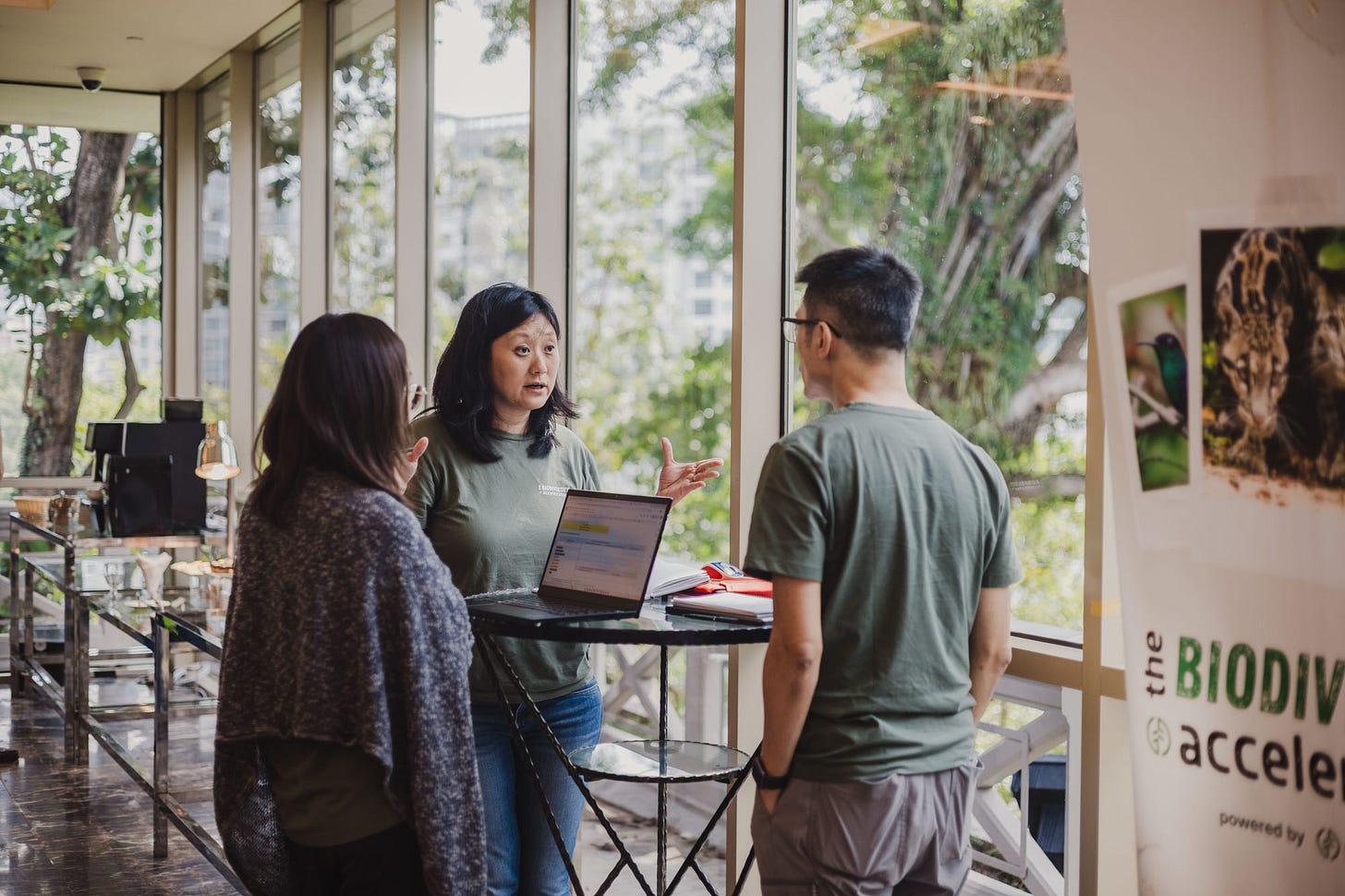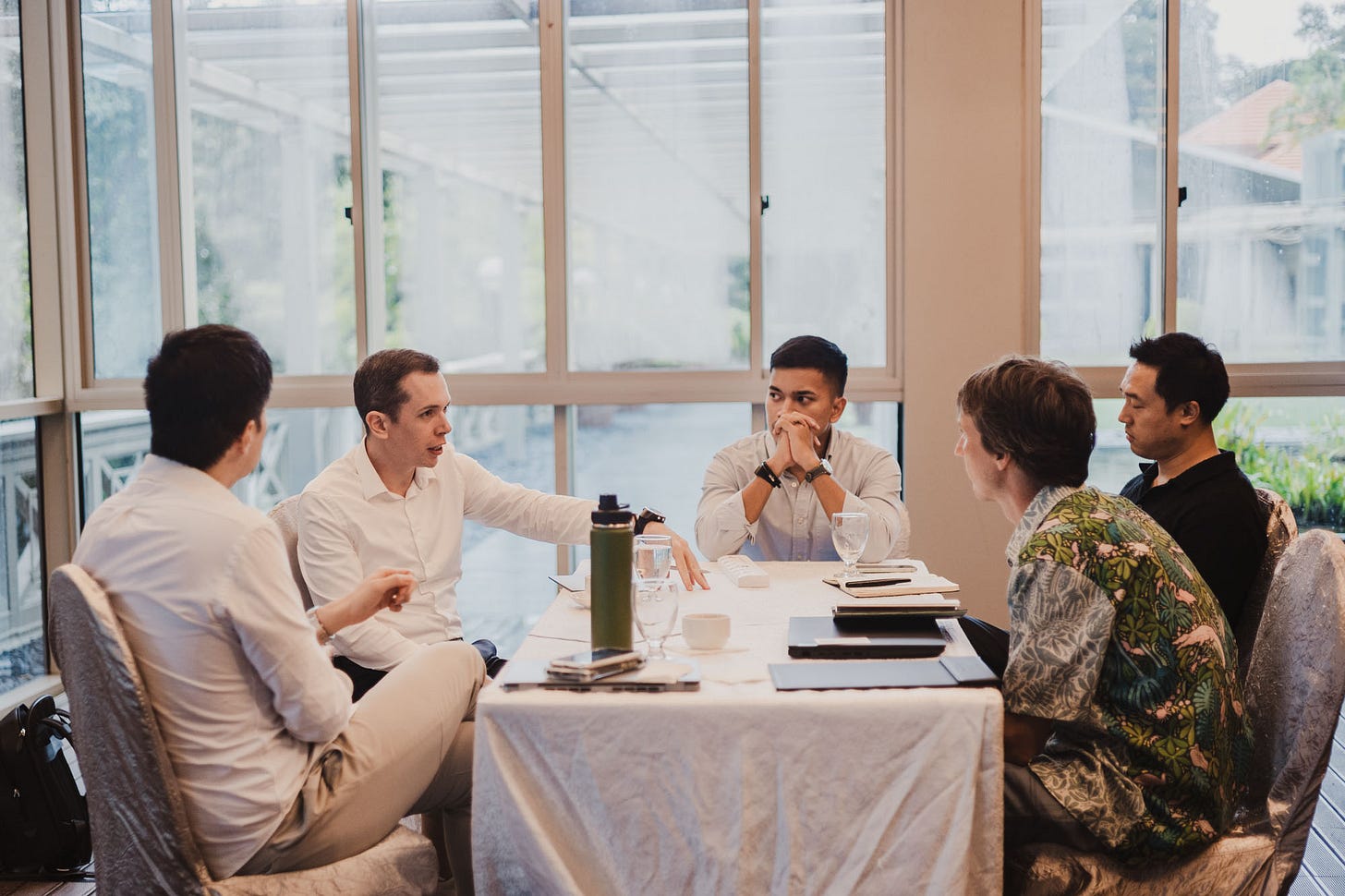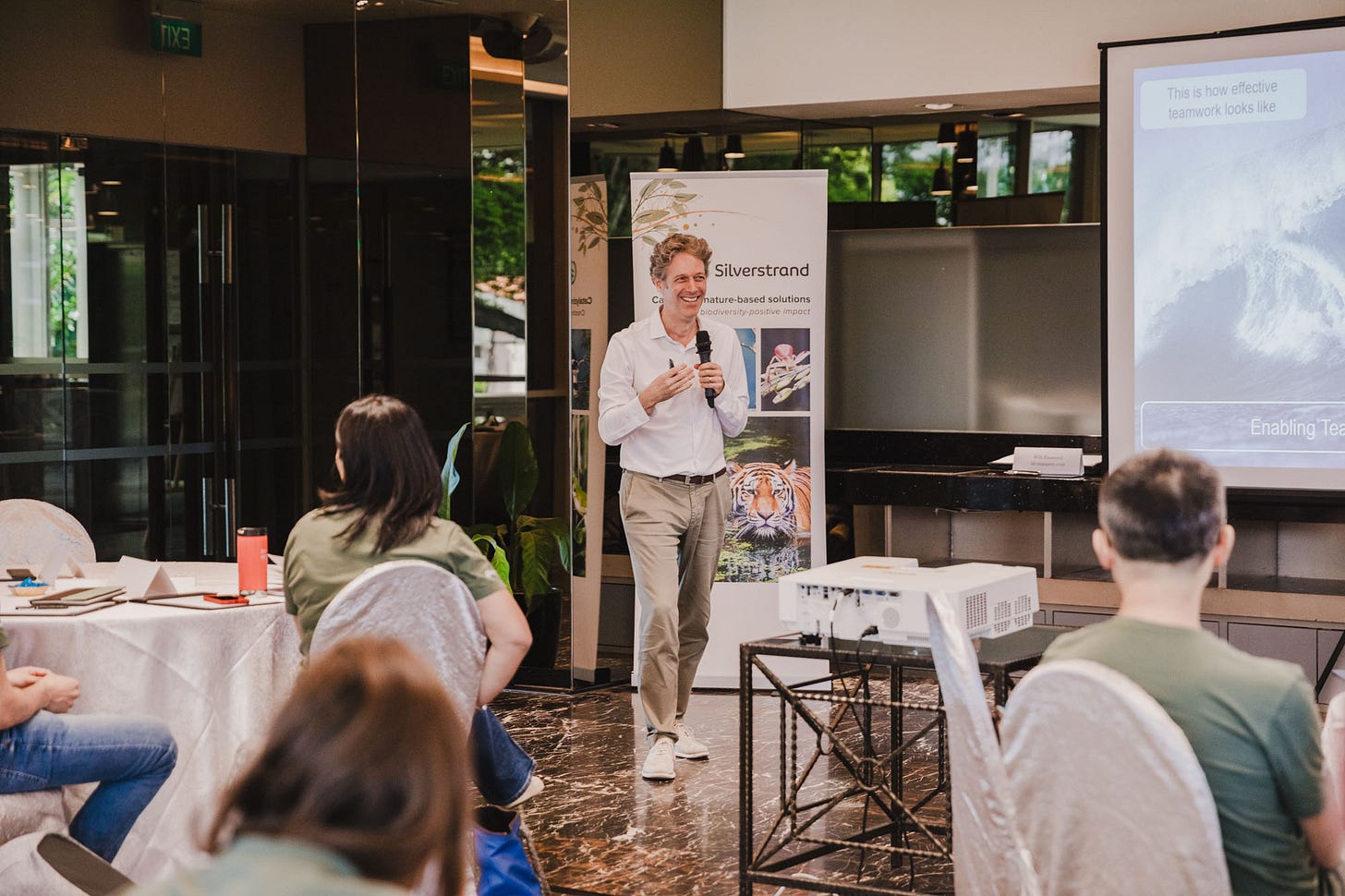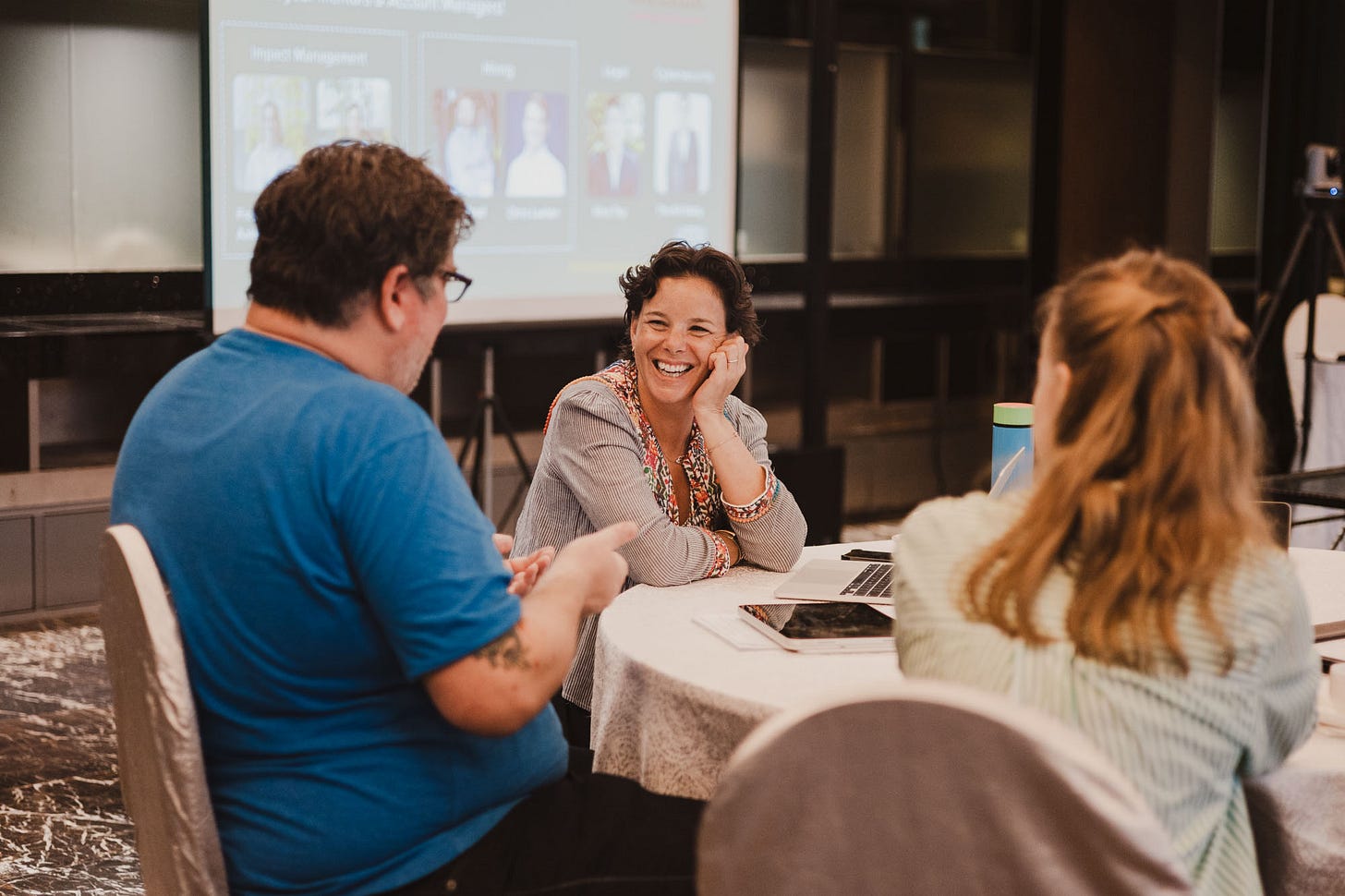Welcome to Week 1 🚀
5 key takeaways from the Biodiversity Accelerator+ 2024 Kick-Off, for any founder driving biodiversity-positive change
Last week was one of insight and excitement for us here, as the third cohort of the Biodiversity Accelerator+ joined us in Singapore for our kick-off.
The 2024 group of founders have been hard at work: participating in a series of interactive lectures from our knowledge partners, engaging in intensive 1:1 consultations with coaches and mentors, and networking with local stakeholders.
Above: Silverstrand founder Kelvin Chiu addressing our guests at dinner
In the words of 3T founder, Ian Shimizu-Pughe: “This week has been very intense - My mind is constantly buzzing, trying to process all the conversations we’ve been having, and thinking about all the follow-up work I know we need to do. But I’m also excited by what’s ahead for us.”
From pricing to impact, commercial strategy to leadership and team-building, here are 5 astute pieces of advice shared by our mentors ↓
Above: Silverstrand team members Patti Chu and Joy Teo with Robotics Cats founder Andre Cheung
#1: Don’t choose your target market based on TAM alone.
“This is a common pitfalls for founders,” shared Claire Rampen, ex-founder and principal consultant with commercialisation advisory First Matter.
While market size is important, it’s only one of the factors entrepreneurs should consider when developing their go-to-market strategies. For example, startups often have to prove their ability to execute at pilot scale before they’re able to secure contracts with the large customers. In early markets, it make more sense to prioritise customers that are less bureaucratic, that can move quickly to make purchasing decisions, and help you test and validate your production operations.
“Over time, as you validate your product-market fit, your objectives can shift to include markets that better position you for scale.”
Above: Julien Marquegnies and Alex Ma of Simon Kucher, working with Cameron Dowd, CTO of Inverto on pricing. He is joined by his BA+ account managers Baxter Hernandez and Clive Ye
#2: Design your product around your price - not the other way around.
If you asked a potential customer, “Would you buy this product?”, you’d probably get a very different answer than if you had asked, “Would you buy this product for $10,000?”
“One of the key reasons that products fail is because companies don’t have the willingness-to-pay conversation early,” expressed Alex Ma, Senior Manager at sales and pricing consultancy Simon Kucher. “By the time they go-to-market, they’ve over-engineered their product, and nobody wants to buy it at the price they’re asking for.”
It’s much harder to scale back products after launching, and to work around margins - so make sure that price is part of early discovery conversations.
Above: Tim Wieringa’s workshop on team effectiveness
#3: Conflict is an important part of any healthy organization.
By their nature, the startup environment is highly experimental, and small teams means everyone needs to be positioned to perform. That means founders must develop an environment for open and respectful communication.
“Based on a trust-based culture, disagreements can be regarded as opportunities to create transparency, learning and alignment which will generate productive business outcomes,” shared Tim Wieringa, People Transformation Director at Hive 17 Consulting.
In a separate fireside chat, Kat Bruce, founder of eDNA company Naturemetrics also shared her personal journey, adding, “In the beginning it can feel like everyone is on the same page, but this inevitably will get challenged. It pays to start with a solid foundation with good legal agreements in place for founder and shareholder agreements.”
Above: Ocean Ledger founder Paige Roepers presenting a team discussion, which also included Scott Agnew of Accounting for Nature
#4: Plan ahead to fundraise well.
Anybody who has raised before will probably tell you two things: It’s not easy, and it takes longer than you think. “Know what types of investors you want on your captable, be clear about the major milestone you need to achieve along the way, and start your process earlier than you think you need,” shared Dan Madhavan, Partner at funds management and advisory firm Ecotone Partners.
“You’ll likely need to talk to hundreds of investors, so don’t take ‘NOs’ personally. It’s all part of the process.”
Above: John Higley, founder of EQO, in a 1:1 with Johanna and Fredrika Aakerman on impact.
#5: Connect the impact metrics you report on to your mission and vision - don’t overcomplicate things.
For startups with limited resources, the world of impact reporting can seem daunting, and a problem for “not-right-now” (especially if you’re looking at formal frameworks like SASB or SBTN, and thinking about getting pricey impact auditors into the mix.)
“Your mission and vision statements provide a foundation for your Theory of Change,” shared Johanna Lepeu - El Iman of impact investment advisory Mana Impact. “Invest in collecting and reporting on a few key metrics that are selective, but effective in helping you understand your progress towards reaching your mission, and help you ask “why” if you’re not.”
“Even in the early days, it’s important to be accountable to your impact claims,” added Sue-Ann Huang, Director of the Centre for Impact Investing and Practices at Temasek Trust. “Making a firm commitment to positive impact is but a start. Follow through by having a robust process to measure, monitor and evaluate your impact, using evidence.”
Above: Stakeholder networking dinner including Ziad Matar, of Veridi Technologies, Megan Pillsbury, of Dunya Analytics, and EIRs Gerald Tock, Karin Del Rey, and Antony Yousefian.
It takes a village to raise a child - or in this case, to build capable, fit-for-purpose organizations that are both impactful and financially-sustainable.
As always, we are thankful to all our partners, coaches, and entrepreneurs-in-residence for sharing their wealth of knowledge and experience with us. This programme would not be possible without your support.
If you’re interested to follow along, don’t forget to subscribe - we’ll be sharing more about the topics and guests joining us in the weeks to come.




